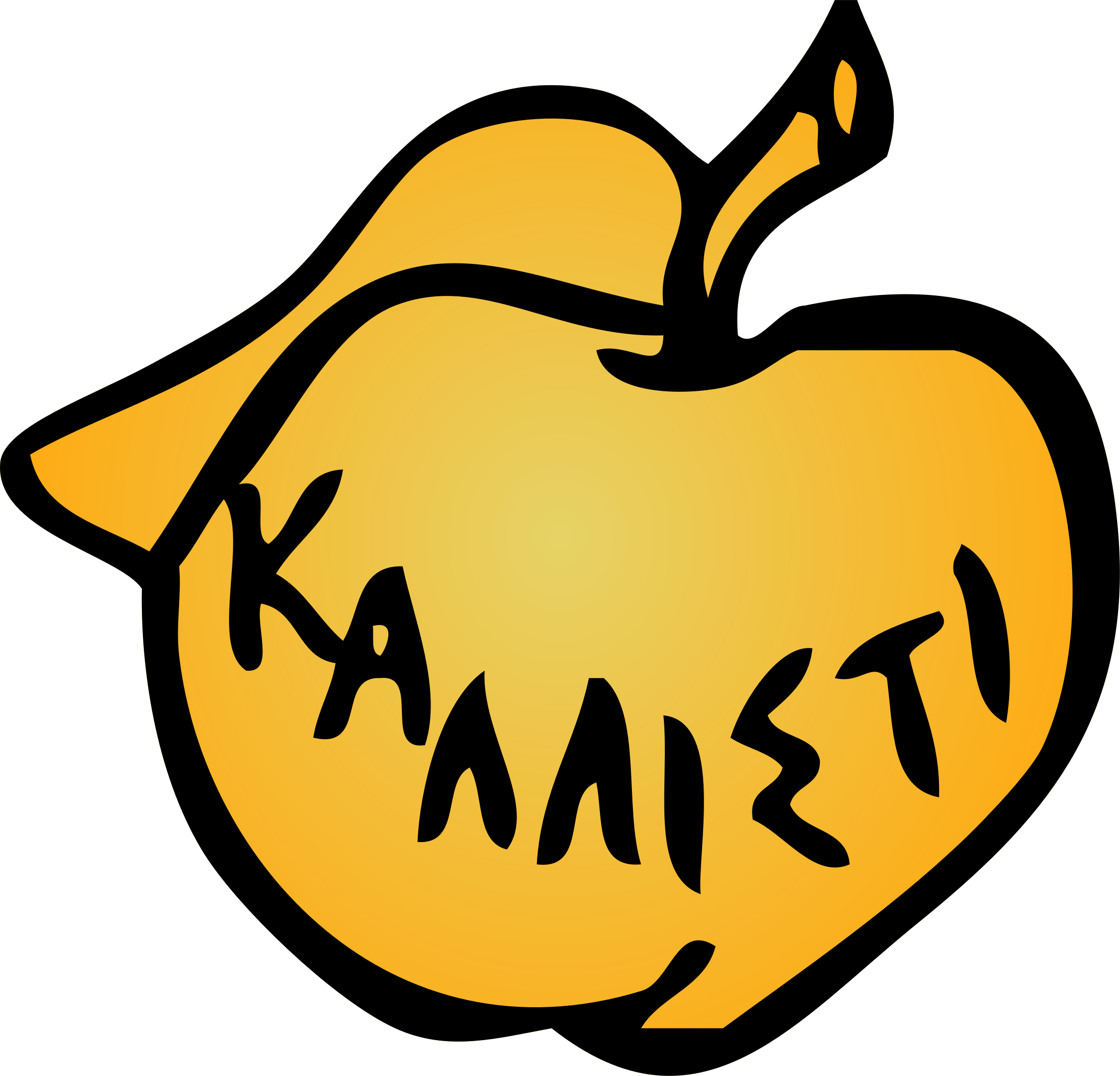Quantum mechanics unveils the spaghetti code on which our universe runs
String theory… further proof that breaking your spaghetti violates the fundamental laws of the universe.
breaking your spaghetti
This angers the Flying Spaghetti Monster.
I just want to say that string theory is in all likelihood complete bullshit and I’m tired of people acting like it’s not.
Even if it’s not bullshit, from what little I understand it’s essentially unprovable. Which makes it useless in science.
i can’t wait to see the source comments
“this should NOT work, yet it does, if you touch this i will flay you alive”
This is beautiful, it’s poetry.
Just because you know how something works doesn’t make it not magic
If you understand how quantum mechanics works, why are you keeping it a secret?
Out of pure spite.
If you understand magnets you know how magic works. Hell, even aerofoils seem like a glitch in reality.
The dictionary disagrees with you.
That’s because it’s a dic.
Sorry, but higher literature (DnD rulebooks) disagree with YOU
This is Science Memes, not Fantasy Memes lol
The dictionary sucks.
Any sufficiently analysed magic is indistinguishable from science!
Even magic itself loses its magic when you know how it works.
Does it, really? Or is it “magic” all the way down…? :-D
As someone who was crazy about magic as a kid and learned a bunch of magic tricks, yes, it does. Really.
Oh yeah, for magic “tricks” that’s fair:-).
You could still use it to cause squeals of delight from young’uns who don’t know any better yet. So the utility is vastly diminished, but not entirely gone.
As someone else who was crazy about magic as a kid, I feel like that just made magic even more magical. Having an understanding of how magic tricks work lets you really appreciate the art and be truly wowed when you see a trick you can’t figure out.
I still appreciate it, but the “magic” is gone. It becomes an intellectual and physical challenge once you understand the mechanics behind slight of hand and other forms of stage magic.
Yeah, for sure. To me, the intellectual and physical challenge is the magic.
I guess to me the magic that’s left are the reactions I get from people who really love magic. There isn’t really anything else I can do that provokes such a happy reaction from people. Plus the genius behind some of these tricks is really amazing. Guys like David Blaine really are geniuses in their field. I found a PDF file on the torrent network that contained all of his popular tricks back in the mid 00’s, and the looks of absolute amazement I got at parties was priceless. One of my brother-in-laws accused me of being a warlock when I showed him some tricks the first time I met him. Haha!
What did you think of magic after you learned occultist techniques?
That it’s not real, which was also a disappointment.
Totally agree. I just witnessed my sister delivering her baby a few days back.
As a matter of fact, reality is far more exciting than magic. Magic is limited by what our feeble human minds can dream up. Science has shown time and time again that reality is far more complex and far more interesting.
The difference between magic and science is that magic is centered on humans in the way that the entire cosmos was once thought to rotate around Earth. Both a magical universe and a scientific universe contain rules that humans can discover and tools that humans can use to influence their environment, but a magical universe is for humans and about humans whereas a scientific universe is not even indifferent to humans.
I admit that it would be nice to have gods and even the very fabric of reality care about what I want…
Sorry, hon. The magical universe may SEEM to be centered around you, but you’re really just experiencing the side benefits of it being centered around me.
Shut up, Harry Potter.
I think that’s actually a question that can be taken seriously. My answer would be that a Turing-complete universe with a mechanism for decreasing local entropy would be sufficient to make it possible (not necessarily likely) that some sort of computing entity would arise and comprehend something like the anthropic principle.
Pretty much everything in Terry Pratchett’s oeuvre could and should be taken seriously. Praise Anoia that he also took it with a grain of salt, and with tongue stuck firmly in cheek!
That’s, uh… That’s completely not true. I know lots of otherkin magic users. Magic tends to be more popular with otherkin than humans in my experience. Humans are happy to remain in consensus reality because it was built for them. Otherkin need to use magic to find worlds where they can exist.
What?
Translation: my acid was extra spicy today.
Everything I just said is contextualised by the manifesto at http://soulism.net. TL;DR: reality is fake and bad, support minorities.
Reality is a social construct and is therefore limited by human imagination.
God doesn’t play with dice
-Einstein<An infinite number of dice appear at the plank scale>
Tada!
-GodAs a former evangelical Christian, the natural universe we inhabit is magical and exciting and fascinating in a way that it simply isn’t when you believe it was the creation of an all-powerful God as basically a training ground for Heaven or whatever.
There is so much more to learn and understand. It is fucking awesome!
As someone raised by Christians I’m glad you made it out too.
That is very kind of you to say, and the same to you.
I do agree but if you wanted to make to case for ‘God’ they could have made sure some of their creatures evolved to understand his work, assuming they did it in a logical way. I’m not a person with faith but just try and think a way is possible, though usually trying to understand weird comic and media universe type actions.
We are the way for a universe to understand itself (paraphrased from Sagan). Though his writing is much more interesting than this comment. I just think there’s room for belief if it works for people, but not for the strict literal interpretations that many seem to believe.
That Sagan phrase inspired me to adapt a Descartes principle:
Because I am conscious, the universe is conscious.
A horse walks into a bar, and the bartender says “Say, you’re in here a lot, are you maybe an alcoholic?”
The horse says “I don’t think I am.” and immediately vanishes.
I would have said at the start that it was going to be a Descartes joke, but that would have been putting Descartes before de horse
I’m not sure I’ve heard that one, very similar and awesome. I should read some of him, yes I know very famous just something I haven’t got around to doing.
I’m glad you haven’t heard it because from my perspective, the universe thought I had come up with it myself, haha. But I haven’t read Descartes either, so I cannot say for certain.
i think if we’re arguing anything as magic, it’s probably the fact that we’re here, on earth, and that earth is the perfect planet, and that it has plenty of resources for us to exploit, and that we just happen to be intelligent forms of life capable of exploiting such resources.
Who gives a fuck about anything else when the pure and fundamental question of “why us” is literally the only thing you need to keep your going until you die.
If I watch too much fantasy world or read about it too immersively , I think about how all of their powers are normal to them. Light, fire, storms, electricity, the states of water, tides, giraffes, etc., they’re all magical. We’ve just named them and have ways to describe how they work in an orderly, understandable, format.
Ah yes the giraffe, the most magical being
I appreciate you. https://imgur.com/gallery/new-favorite-gif-EkO9uj8
Scientists are this world’s wizards
A good illusion is still spectacular even when the illusion is broken. The magical world was boring to begin with.
Pen & Teller have entered the chat.
Science is just a stepping stone to philosophy.
Actually, all roads lead to philosophy.
Philosophy is just science, except without the requirement that things align with reality.
What is reality?
Proven philosophy
Ever heard of a French guy called René Descartes? He basically wrote the script for this movie, The Matrix, a few hundred years before they started shooting it.
Yep, we read his meditations and watched The Matrix as part of my philosophy class in college.
TLDR: Science only exists because philosophers laid out the framework for science. The entire concept of the scientific method was designed and refined by philosophers, the whole concept of science was created by philosophers. The dangers and risks of science were identified by philosophers. It is the duty of the scientist to gather knowledge, it is the duty of the philosopher to question science.
Science runs because philosophy walked.
Philosophy of science looks at the underpinning logic of the scientific method, at what separates science from non-science, and the ethic that is implicit in science. There are basic assumptions, derived from philosophy by at least one prominent scientist, that form the base of the scientific method – namely, that reality is objective and consistent, that humans have the capacity to perceive reality accurately, and that rational explanations exist for elements of the real world. These assumptions from methodological naturalism form a basis on which science may be grounded. Logical positivist, empiricist, falsificationist, and other theories have criticized these assumptions and given alternative accounts of the logic of science, but each has also itself been criticized.
https://en.wikipedia.org/wiki/Scientific_method#Philosophy_and_discourse
Francis Bacon (no direct relation to Roger Bacon, who lived 300 years earlier) was a seminal figure in philosophy of science at the time of the Scientific Revolution. In his work Novum Organum (1620)—an allusion to Aristotle’s Organon—Bacon outlined a new system of logic to improve upon the old philosophical process of syllogism. Bacon’s method relied on experimental histories to eliminate alternative theories. In 1637, René Descartes established** a new framework for grounding scientific knowledge in his treatise, Discourse on Method, advocating the central role of reason as opposed to sensory experience.** By contrast, in 1713, the 2nd edition of Isaac Newton’s Philosophiae Naturalis Principia Mathematica argued that “… hypotheses … have no place in experimental philosophy. In this philosophy[,] propositions are deduced from the phenomena and rendered general by induction.” This passage influenced a “later generation of philosophically-inclined readers to pronounce a ban on causal hypotheses in natural philosophy”. In particular, later in the 18th century, David Hume would famously articulate skepticism about the ability of science to determine causality and gave a definitive formulation of the problem of induction, though both theses would be contested by the end of the 18th century by Immanuel Kant in his Critique of Pure Reason and Metaphysical Foundations of Natural Science. In 19th century Auguste Comte made a major contribution to the theory of science. The 19th century writings of John Stuart Mill are also considered important in the formation of current conceptions of the scientific method, as well as anticipating later accounts of scientific explanation.
https://en.wikipedia.org/wiki/Philosophy_of_science#Modern
Philosophy of science is the branch of philosophy concerned with the foundations, methods, and implications of science. Amongst its central questions are the difference between science and non-science, the reliability of scientific theories, and the ultimate purpose and meaning of science as a human endeavour. Philosophy of science focuses on metaphysical, epistemic and semantic aspects of scientific practice, and overlaps with metaphysics, ontology, logic, and epistemology, for example, when it explores the relationship between science and the concept of truth. Philosophy of science is both a theoretical and empirical discipline, relying on philosophical theorising as well as meta-studies of scientific practice.
https://en.wikipedia.org/wiki/Philosophy_of_science
Does SCIENCE = TRUTH? (Nietzsche + Mega Man) - 8-Bit Philosophy
“Philosophy is just science, except without the requirement that things align with reality.”
Philosophy is just history, except without the dates, events, and locations.
As they said in The Muppet Movie, “its like an ocean cruise except there is no boat and you don’t actually go anywhere”.
“Science is just a stepping stone to philosophy.”
I somewhat agree with this.
The most essential activity in science is observation. Consensus on the facts is the most essential thing.
As a bonus, you can propose explanations. The only acceptable ideas are those that agree with observation.
A “good” scientific idea is one that not only agrees with known facts but also predicts facts not yet known. That way you can “test” the idea to get a stronger sense of how useful it is. Most ideas are not even valid, never-mind good.
So the most important aspect of science is to test ideas against observation. But where do the ideas come from?
That brings us to philosophy…
You need philosophy to do science. So, philosophy leads to science, not the other way around.
Philosophy is the way we try to assign (semantic) meaning to science/scientific observations.
Does the universe really exist outside of our minds? Is the position of matter actually the position we view it at? What is consciousness? I mean it depends on what you mean by existing, or being in a state, or consciousness. When you break language down far enough it becomes clear that it’s not objective, and it’s entirely suited to each person’s unique subjective understanding and interpretation with the context. Language is definitions all the way down. It doesn’t make sense to use human language to describe anything objectively, yet we try anyways.
At least, that’s how I feel about philosophy as a linguist and someone who really likes theoretical universe stuff.
its funny to me, the existence of science being something as mundane as “rubbing three moderately flat surfaces against each other in succession will inevitably produce a flat plane as it is the only functional outcome for that problem”
opposed to the incredibly complex and intricate technicalities of steel smelting, and even beyond that, casting properly.
and then also, we know why cicadas make so much noise, it’s really simple. Just a little bit (ok well a lot of bit) of constructive interference. But actually, we also have no fucking clue how they manage to count such long periods of prime duration reliably and consistently.
There’s also the technicality of being able to explain how molecule level physics works, but then not being able to comprehend molecule scale physics in something like biology until recently.
I’m convinced that science is just reverse engineering the universe. Eventually, one day, we will figure out how to create an entire universe, and we will.
Science is the ultimate version of philosophy.
Science shows us why the world is excting and lets us find even more exciting things. That beings said, it’s still a funny joke.
The woo doctor says there’s fairies in the garden and unicorns in the forest, and never shows them to me. The biologist says there’s birds the size of your thumb that flap their wings so fast they become a buzzy blur, and there’s huge winged creatures that fly through the ocean called “Manta rays.” He shows me pictures and specimens of both.
The woo doctor says my fever is caused by a lack of yellow bile, eat this dandelion it’s yellow. The physician says my fever is caused by an infection of tiny creatures inside my body, look you can see them if you look at this snot sample under a microscope. We have a chemical that kills these organisms called antibiotics, eat those and you’ll get better.
The woo doctor says the dot in the sky he thinks of as the god of time has traveled into the crab part of the sky so I probably shouldn’t make any big decisions this week. The astronomer looked through a bunch of old records, noticed a pattern, and predicted the next appearance of a comet down to the finest detail, years in advance.
The woo doctor says things that can burn are full of a substance called phlogiston, which is released by fire into the air, which can only hold so much phlogiston. The chemist says it’s hydrocarbons or carbohydrates combusting into carbon dioxide and water vapor, and proves it by burning a variety of things and condensing water from the vapors that emerge. He’s built way better lamps and is starting to build these powerful engines based on his techniques.
The woo doctor tells fun stories sometimes I guess. The scientist has all the actual cool stuff.
The woo doctor says there’s fairies in the garden and unicorns in the forest, and never shows them to me. The biologist says there’s birds the size of your thumb that flap their wings so fast they become a buzzy blur, and there’s huge winged creatures that fly through the ocean called “Manta rays.” He shows me pictures and specimens of both.
This sounds so much like a writing prompt.
Does it? Because it sounds like history to me.
“Tell me the history of the world using a woo doctor and a scientist as actors.”
Joe wonder why great sky fire rise from mountain every morning, you will explain this to joe.
All basically being bubbles of probability where a field of energy exists, in a seething universe of virtual particles (fields) coming into existence and getting annihilated by it’s anti-part again.
The “universe of whirling chaos, birthing existence” i’ve seen in some Manga as origin story of gods, doesn’t seem so far fetched now.
I dont care about particles moving through walls because of science, i want to move through walls by yelling a word because of magic
The rules for magic and the rules of existence in most fictional universes are significantly more defined (and, arguably, more solid) than the rules for science and existence in this world.
Even the brush off of “Its magic. I don’t have to explain it,” at least indicates that SOMEONE understands the effect and its relative existence.
If you find 5 people who say that they fully understand a single branch of science then I’d bet all of my money in my pocket that you found them in a padded recovery room sans shoe laces.
I always like the comparisons to how magical our world would seem to someone in an alternate reality where transistors or maybe even electricity wasn’t a thing.
Like you can dumb it down to really magical sounding things like calling a cpu “runes etched in sand”.
this makes me think of the meme about time traveling an awing everyone and they ask but what is electricity to the average joe guy
The first hard part is understanding what electricity is. The second hard part is not getting murdered over it. For most of history, only the rich and powerful could pursue science.
Quantum mechanics is not magic. Magic specifies the outcome, but not how a system evolves to reach that outcome. Quantum mechanics has precise equations describing how a system will evolve over time, but is famously bad at describing the outcome.
By the same token, we can see that thermodynamics and conservation laws, while widely accepted, are magic. I have heard legend of a deeper magic known as “Lagragians”, although knowledge of that lost art remains confines to the warlocks’ ivory tower.




















